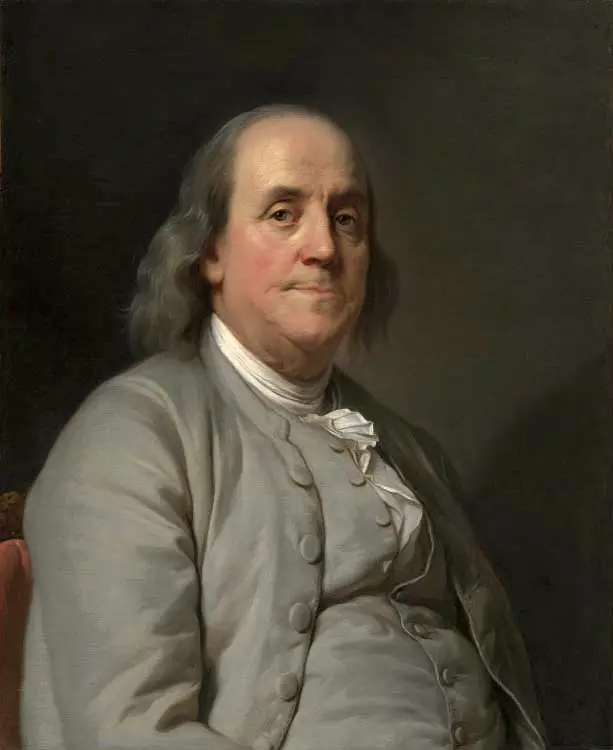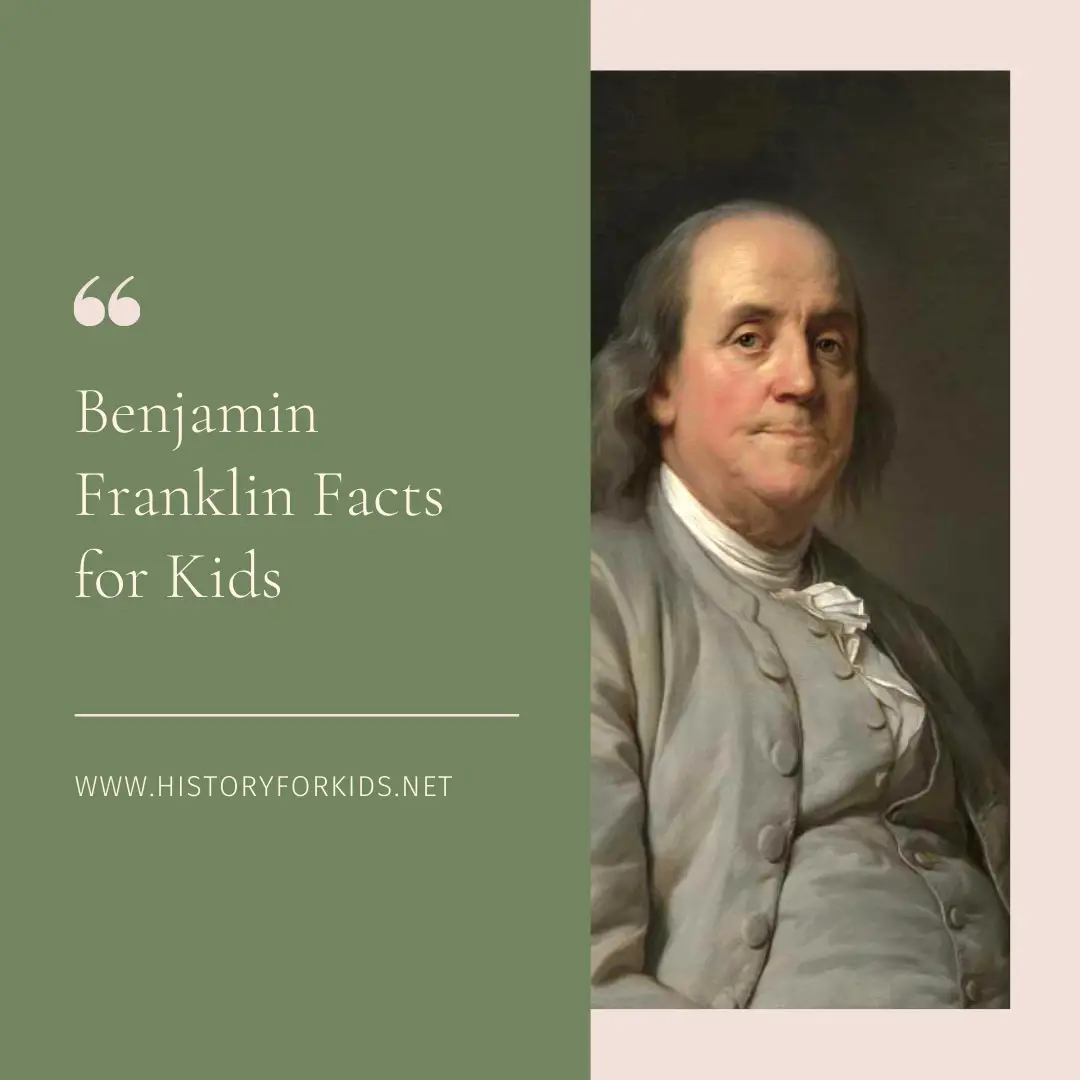Benjamin Franklin
Benjamin Franklin was one of the founders of the United States, but he is also well-known for being an inventor and a statesman.
Considered to be multitalented, he excelled in writing, politics, music, invention, diplomacy, and science. Franklin was found to be a “Renaissance Man,” influencing local and international events of his time.

Early Life
Ben Franklin was the son of a chandler, which is the profession of making soap and candles, and was born in Boston, Massachusetts.
Ben was the youngest of sixteen brothers and sisters and had very little formal education.
When he was ten years old, he had to abandon school to work with his father and then later became an apprentice to his brother as a printer.
Ben loved reading and was somewhat self-taught due to all of the books that he read. When Ben was 17 years old, he ran away and became a printer in Philadelphia, Pennsylvania.
Early Career
Franklin made a name for himself in Philadelphia when he became the publisher of the newspaper Pennsylvania Gazette.
He was intelligent and witty, and it didn’t take long for his reputation to expand throughout the colonies.
In his early years, he had a few different jobs in London, England, and Philadelphia, and he had useful contacts in London.
At the beginning of the fight for freedom against the British Ben acted as the Pennsylvania colonist’s voice to the British Parliament.
He later protested against the Stamp Act of 1765, which imposed taxes on publications. The logical arguments that Franklin gaveled to Parliament repealing the act.
Benjamin Franklin began publishing his famous “Poor Richard’s Almanack” pamphlet in 1732. He wrote under the pseudonym of Richard Saunders, and the pamphlet covered a lot of interesting topics.
Benjamin earned a good living with the sale of the pamphlet for 25 years.
The Revolutionary War
The Revolutionary War was close at hand, and although living in London, he came home and suggested that the colonies have a meeting in 1774 that would be the First Continental Congress.
In 1775 Franklin delivered the petition to King George III of England. Upon his return, Franklin was elected as the delegate from Pennsylvania for the Second Continental Congress, and the Revolutionary War had already started.
Franklin became heavily involved in the political committees of the colonies, with a major role as part of those that wrote the Declaration of Independence.
He also became the first Postmaster General of the new nation.
Treaty of Paris
Wars cost money, and the colonies needed backers to help them fight the British.
Ben Franklin went to Europe in 1776, focusing a few years in France to try to get their support for the American Revolution.
By 1778 France joined the colonies as an ally in the fight, and it proved to be one of the most important actions that led to eventual victory.
Ben stayed in France throughout the war and assisted in the negotiations of the war’s end with the Treaty of Paris.
What did Benjamin Franklin invent?
Beyond writing, Franklin was an incredible scientist and inventor.
He is most well-known for his experiments with electricity and the story of the “kite,” but he invented a lot of things that we take for granted today.
It was Ben that invented bifocal glasses, a carriage odometer, the Franklin stove, and the glass harmonica.
His fascination with science led to discoveries in the fields of cooling, printing, electricity, meteorology, and the wave theory of light.
Ben Franklin’s love of reading led him to start the first library in America. He also founded the first fire department.
Later Life
Once Franklin came home from France in 1785, he was a participant in the Constitutional Convention.
He was the only founder to sign the Declaration of Independence, the Treaty of Alliance with France, the Treaty of Paris, and the Constitution.
His only major political role with a title was when he served as a kind of governor of Pennsylvania. Franklin died in 1790 in Philadelphia, Pennsylvania.
Facts about Benjamin Franklin
- He was born January 17, 1706, in Boston, Massachusetts
- He was the tenth son Josiah Franklin
- His father could not afford to send him to school; he stopped going to school at ten years old.
- When he was 17, he left Boston and worked as a printer in Philadelphia
- He conducted scientific experiments and invented the lightning rod, bifocal eyeglasses, Franklin stove, and the glass harmonica, a musical instrument.
- Benjamin Franklin was one of the Founding Fathers of the United States
- He helped to create the foundation of the Articles of Confederation, which later became the first constitution of the United States in 1781.
- In 1776, Franklin was one of the five members of the committee that drafted the Declaration of Independence,
- He died April 17, 1790, in Philadelphia, Pennsylvania
What did you learn?
What talents to Benjamin Franklin have throughout his life?
Scientist, printer, writer, politics, music, inventor, diplomat
How did Benjamin Franklin receive his education?
Self-taught through reading
What was Franklin’s first job as a teenager?
Printer’s apprentice
What law did Franklin convince the British Parliament to repeal?
The Stamps Act
Benjamin Franklin used his negotiating skills to convince what country to join as an ally to the colonies to fight the British?
France
Franklin is most well-known for signing what document that led to the development of freedom?
Declaration of Independence




